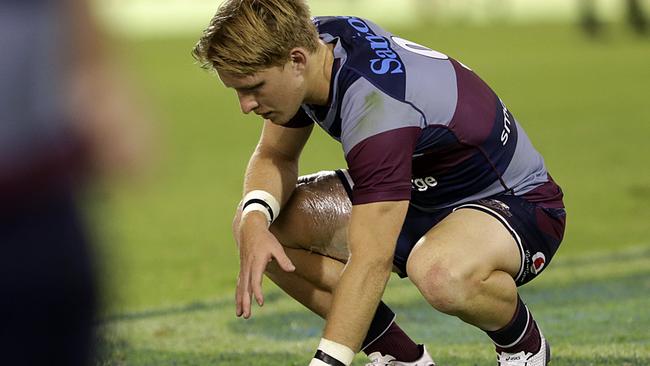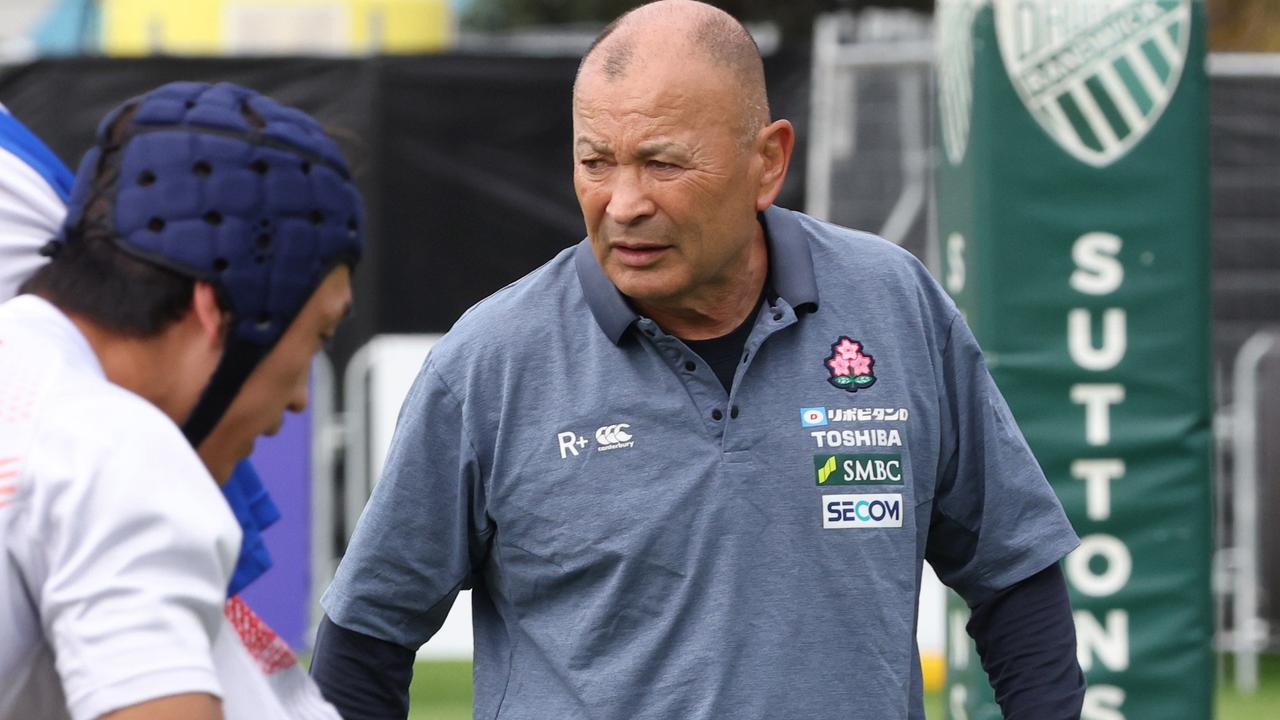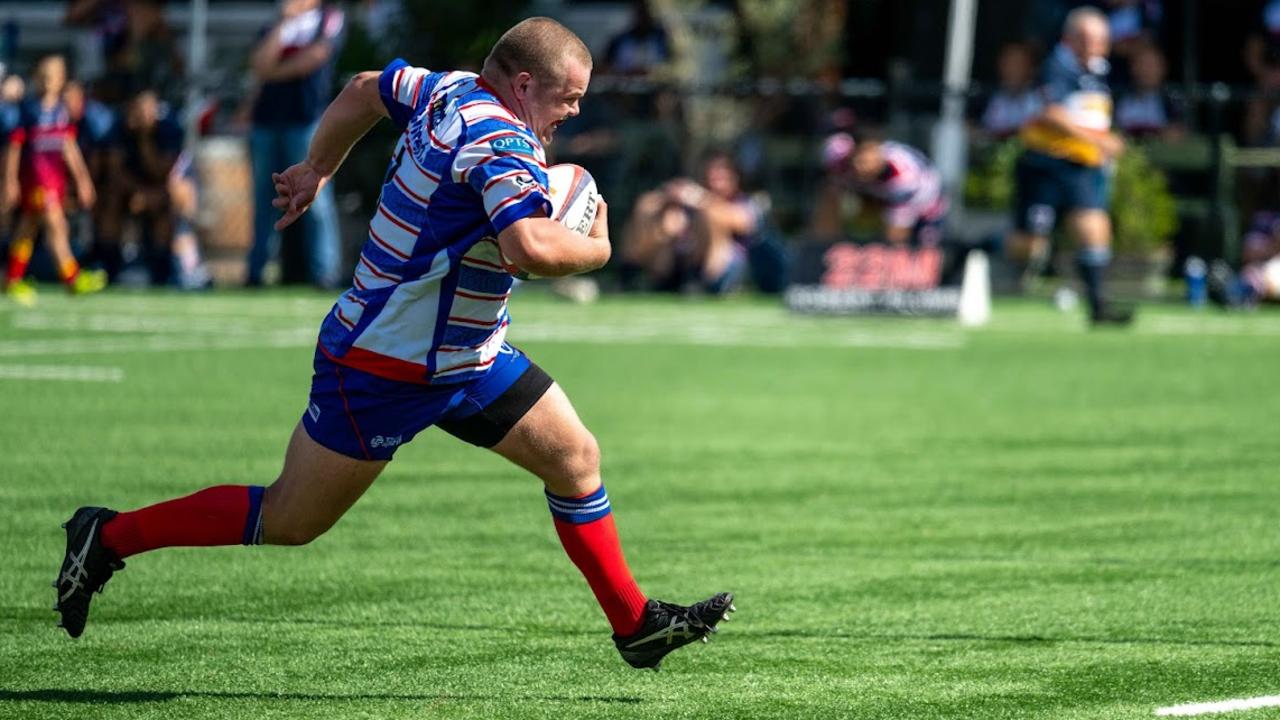
The house of rugby is no different from the suburban home.
If you spend all your money on the roof and nothing on the floor, the joint falls down.
And that’s where we are!
At last count, there were over 140 people at Rugby Australia’s head office.
God knows what they do, but they don’t come cheaply.
Then, of course, you have elite players signed to central contracts, hundreds of thousands of dollars when, had we let these players choose where they could play, anywhere in the world, someone else could pick up the tab.
If they want to play for Australia, it would be up to them to see that there are release provisions in the contract to return home when needed.
We would then only be responsible for match payments and hopefully a new administration would abandon the current practise where you are paid thousands of dollars, on top of your contract money, whether you win the Test or lose it.
Mind you, if you run on for five minutes, you still get a big dollop of money!
The reality is the public have had an absolute gutful when you look at what our money is producing via the Super Rugby results.
The correspondence following last week’s column is immensely disturbing.
Jayel says, “Forget rugby until there’s no one left to screw it up.”
Kevin: “The intolerable farce of Clyne and Castle cannot be left to continue one moment longer.”
Chris: “Rugby Australia, New South Wales Rugby and Queensland Rugby need to be cleaned out and fiefdoms ruthlessly destroyed for the good of the game. It will never happen. RIP Rugby Australia as a force in world rugby.”
Jason: “The bigger question I have and perhaps AJ can discuss next week is what is the mechanism for the removal of Clyne and Castle?”
Well, I know the expectation would be that I have an answer to that.
But the set-up is a fortress.
Unless New South Wales and Queensland strike, no one can break down the door.
But if I come back to the earlier analogy re the house of rugby, perhaps a new administration may consider a Grassroots Cup.
One of my correspondents writes with enthusiasm about such a proposal.
Introduce a tribal element back into the game which does not exist in rugby in Australia, outside local club competitions.
And such a cup must involve clubs from all Australia, including Victoria, WA and South Australia.
After all, the notion of Australian rugby is a misnomer. It should be called Rugby Australia minus WA! But nothing can happen until there is a root and branch cleanout.
Just on that, I note that there is a “Nominations Committee” overseeing Board replacements.
Three people. Two of them I have never heard of. I would love to see the CV of these three people as to what they know about rugby.
And if you don’t know much, what questions would you ask the candidates. I may ruin his candidature, if indeed it is alive, but David Mortimer is the man for the top job.
He has served as chairman of more than 20 corporations and non-profit organisations. Big stuff, successful stuff.
He was instrumental in setting up the Australian version of the Kiwi initiative, International Rugby Academy Australia.
He is the longest serving president of the Sydney University Football Club, 16 years at the helm.
But if you don’t know much about the game, I suppose none of that means much.
I repeat what I’ve said many times. This should be an exciting time for Australian Rugby.
The thing that has always energised me is the extent to which remarkable talent keeps emerging.
Until, of course, it is butchered by ineffective coaching.
I note publicity this week for a 16-year-old Joseph Sualli. He is at The King’s School, Parramatta, 96 kilos. As an athlete, I understand he was good enough to pick between rugby league, rugby union, AFL and basketball. A freakish schoolboy talent such that King’s had to receive special exemption to play him in their First XV at the age of 14.
But … he has been signed by NRL team South Sydney.
Join the others who have not been retained in our game.
Recently I was reading about the mercurial young quarterback Patrick Mahomes who led the Kansas City Chiefs to their first Super Bowl victory in 50 years.
He was a breath of fresh air in the NFL where, thankfully, there’s a trend towards promoting young quarterbacks.
Youngsters, after all, haven’t had goodness and ambition coached out of them.
In the Six Nations, there are a couple of young guns leading their team’s attack.
In France, the talented young Romain Ntamack is stepping up; in Scotland, it’s Adam Hastings.
Both of these young playmakers are the sons of former gifted internationals.
Australia is similarly well endowed with young players looking to launch their careers.
These young fellows are confident, skilful and like Patrick Mahomes, blessed with a mindset which believes anything is possible. However, developing talented young playmakers requires patience.
I was delighted to read a piece by Ian Chappell which echoed the sentiments that informed me when I was picking a Test side.
He wrote, “If selectors have a choice between two players of equal ability, one aged 20 and the other a decade older, the younger cricketer should be preferred on the basis of greater upside.”
I agree entirely.
Part of the price you pay in developing talent is to see mistakes being made.
I remember picking a young man for the first time in an Australian team and on our first training run, he was silent but frowning.
I asked him what was wrong and he told me that he was having difficulty with the alignment.
I asked him what the problem was and he said that he felt he was standing too flat.
I said, “I didn’t tell you where to stand. I merely told you where I wanted you to direct the attack.”
Then I said to him, “If it helps you, let me tell you something. On Saturday, I don’t care how many passes you drop or how many tackles you miss, you’ll still be there next week.”
A smile came to his face. He set a points scoring record on Saturday.
Sadly, today, much of this talent is buried in poorly performing and poorly coached sides.
New South Wales have made their worst ever start to a Super Rugby season. They are at the bottom of the Super Rugby table.
The so-called “blue wall” in defence has become nothing more than a “blue speed bump.”
But if I hear the argument ventilated again that it’s a young side and they’re finding their way and there’s a new coach — I’ll throw something at the TV.
If you’re good enough, you’re never too young.
Our problem is that talent exhibited by these young people is not replicated in the board room at Rugby Australia.
We desperately need real leadership with new, ambitious and refreshing ideas.
Cameron Clyne is preparing to jump ship. In the corporate world, he would be gone long ago.
Raelene Castle gives every indication that she’s preparing her exit strategy. We are told they are negotiating a broadcast deal but they can’t decide what product they’re offering. Is Super Rugby, in the new broadcast deal, going to be what it is today?
If so, as I wrote last week, we’ll fail before we begin. We need an immediate divorce from SANZAAR. All we seem to get from Rugby Australia are people running round putting out fires.
If we needed a firefighter to run our game, we could call up Shane Fitzsimmons from the New South Wales Rural Fire Service.
Firefighting won’t save our game.
Look at the results. Look at the crowds. Look at the television audience.
Last week the game between the Waratahs and the Melbourne Rebels attracted 55,000 television viewers, a quarter of those watching the Rugby League Nines.
And still the administration won’t admit that the game is burning and we’re only just starting to look for buckets.
We need people who will dream big and make things happen. Even last year, the Brumbies, who have won 13 of their last 20 matches, had an average crowd of 8500. Even a winning franchise is struggling to engage with the rugby public.
The brand is damaged. The rot has set in.
Right now in France, the average television audience watching their Six Nations team is almost six million.
Our television audience, our interest in Super Rugby is about one per cent of that in French rugby.
Does that sound like a crisis?
But where there is a crisis, there is an opportunity. We are putting the cart before the horse.
Before we talk broadcast deals, restructure the Super Rugby competition.
If we lock into another five-year broadcast deal with this “product” we’ll be signing our own death warrant. I repeat, let South Africa link up with the UK and Europe. We should welcome Japan. Bring in a Pacific Island nation.
Embrace New Zealand as we did years ago when Australian provinces ruled the world.
We need to be playing against teams in our own time zone and, as I have said before, Japan has some wonderful teams chock-a-block full of world class players. Plus, there are almost 130 million Japanese people.
Their game is bordering on world class. If we don’t get a wriggle on, they will overtake us on the world table. They are ranked eighth. We’re seventh.
They played some breathtaking Rugby at the Rugby World Cup which generated 447 billion yen. It attracted a record 99.3 attendance at all 48 matches.
There were more than 1.7 billion digital video views. If we’re looking at maximising broadcast revenue, to finance our game, Japan belongs with us.
While the crowds in Australia were deplorable last weekend, there were almost 20,000 in Tokyo to watch the Sunwolves play the Chiefs.
“Konjo” is the Japanese word meaning courage, strength, sacrifice and loyalty.
It’s the way of the legendary samurai warrior.
We need a new chairman and a new board that has some “konjo.”
Japan is a potential rugby goldmine. The trouble is, if we go the way we are, Japan will share the goldmine with someone else and we’ll be left with the shaft.




In deciding where to start in the urgent overhaul of Australian rugby, I go back to the analogy that has always informed me, in relation to the game, as a coach and administrator.